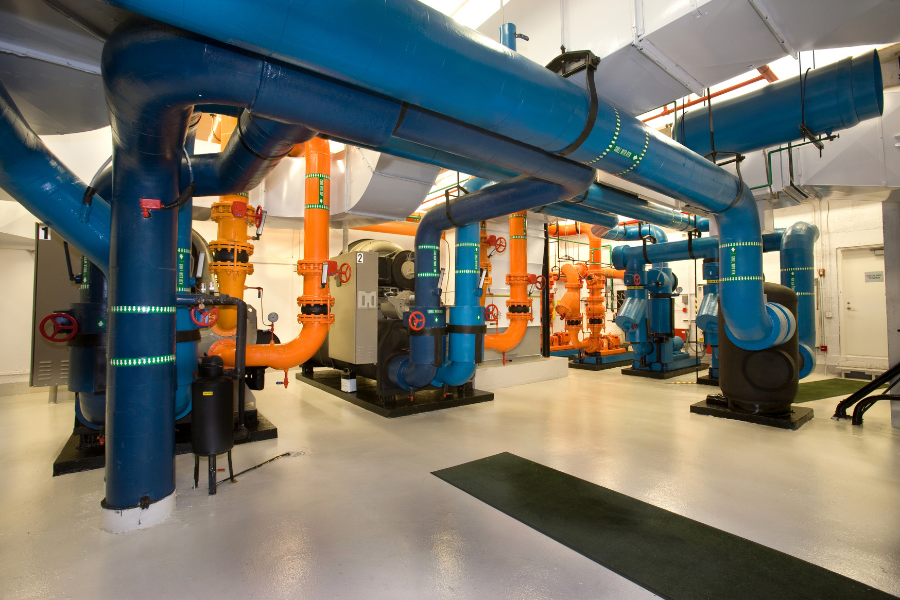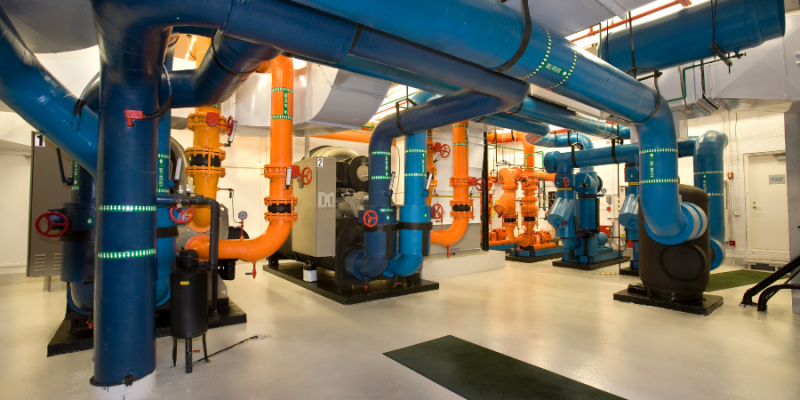
Closed Systems and Filming Amine Technology
Traditionally, chilled closed loops have been treated with nitrite, molybdate, or — in the old days — chrome technology.
New technology emerges constantly, and another generation of closed loop treatment is upon us: Film forming amines, also known as FFAs.
Early FFAs in Condensate Lines
Long ago, film forming amines were used in condensate lines to protect the lines from acid and oxygen corrosion. Early FFAs from the manufacturer had to be pre-mixed with pure condensate or high quality water on site. This mixture was fed directly to steam lines. The resulting film worked well; however, overfeed and the cleaning properties of the technology often resulted in problems known, in highly technical terms, as gunk balls.
Gunk balls were a mixture of amine and iron which had been scrubbed off the inside of the condensate piping. These small balls literally rolled down the condensate lines, plugging them and causing a range of problems. While the FFAs were good, the problems associated with them often discouraged operators from using them.
A New Generation of Film Forming Amines
Many generations of FFA’s have greatly improved this technology.
Subsequent generations of filming amine have been improved. Present generations of FFAs are easier to feed, applications have expanded, and they successfully provide the corrosion protection desired. And they work without many of the previously mentioned adverse side effects.

FFAs and Closed Loops
FFA’s have been successfully applied to closed loops, their success has been well documented. The new filming amines still have the cleaning tendencies associated with their predecessors. This is well-documented, and having good filtration is critical to minimizing issues when initially introducing FFA’s to systems which have used older technology for protection.
When applying FFAs to an appropriate closed loop, the feed rates are reduced and the clean-up is anticipated and managed. The end result is a physical barrier between the water and the metal surfaces which provides excellent protection even in high stress, mixed metal, and low flow applications.
FFA’s also have the advantage of being phosphate free. Finally, FFA’s have biostatic properties which can help minimize bacterial growth issues which oftentimes create challenges in closed loops.
If you have a closed loop that has challenged traditional technology, consider having a conversation with your Chemtex rep. We may be able to suggest an alternate chemistry which will deliver the results you want. Please give Chemtex a call with your questions. We’d be happy to help you solve your water treatment problems.



/NQA-ISO-9001-Logo-ANAB.jpg)